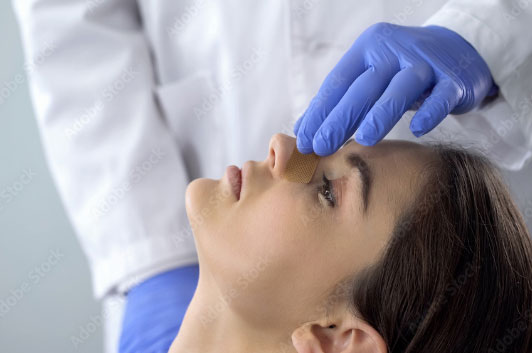Facial Plastics & Cosmetics
Facial Plastics and Cosmetics Services
We Provide Cosmetic and Medically Necessary Facial Surgeries
Our facial plastics and cosmetics team is here to help with comprehensive facial plastics and cosmetics services in Rhode Island. Learn more about our non-surgical and surgical treatment options.
Facial plastics and cosmetics refer to both surgical and non-surgical treatments that are provided to change a patient’s appearance or improve the structure and function of the face. Here is a look at some of the facial plastics and cosmetic treatment options available in Rhode Island.
Botox
Botox is a product that can be used for both cosmetic purposes as well as a treatment of a variety of medical conditions. Botox treatments involve injecting the product into the face (or other parts of the body). This can be done in the doctor’s office while the patient is awake. Usually, one treatment involves three to five injections in the affected area.
Botox can be injected into numerous areas, including:
- Between the eyebrows to reduce the appearance of wrinkles.
- Around the eyes to reduce the appearance of crow’s feet.
Botox can also be used in older children and adults to treat conditions such as migraines and problems with the eyes, including eyelid spasms. There is no downtime for the treatment, and results last from three to six months.
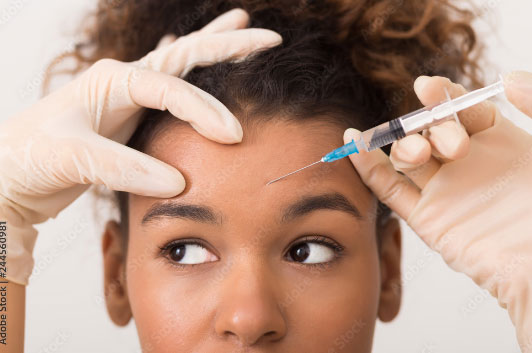
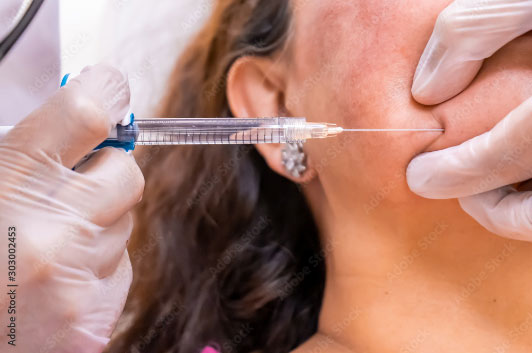
Juvederm
Juvederm is another injectable wrinkle treatment that you can receive in Rhode Island. While Botox is a purified protein that treats wrinkles by relaxing the muscles, Juvederm is a gel filler that fills in the grooves and lines to smooth the skin. Some of the benefits of Juvederm treatments are:
Some of the benefits of Juvederm treatments are:
- The addition of volume beneath the skin’s surface. This makes cheeks look fuller.
- Filling in lines around the mouth and nose, known as smile lines. These lines are the result of the skin losing its elasticity with age.
- Providing a non-surgical enhancement to the lips.
The recovery time with Juvederm is extremely short. But patients are advised to avoid stressful activities, sun, alcohol, and makeup for at least 24 hours after the procedure. Results last from six months to two years and are generally noticed as soon as the swelling subsides.
Blepharoplasty
This is a type of surgery that is used to remove excess skin, muscle, and fat that can cause the eyelids to look droopy. Sagging skin in the eyelid area can result in a loss of peripheral vision. Removing this skin can correct that issue, as well as provide a youthful, alert appearance. This surgery is often performed alongside other procedures, such as a brow lift or skin resurfacing.
Blepharoplasty is generally an outpatient procedure, which means you will be able to recover at home. Patients who have had this procedure commonly experience temporary side effects such as blurred vision, watery eyes, and light sensitivity. Recovery time is usually about two weeks, and results are generally permanent.
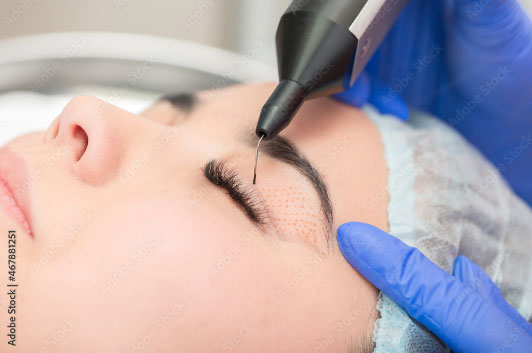
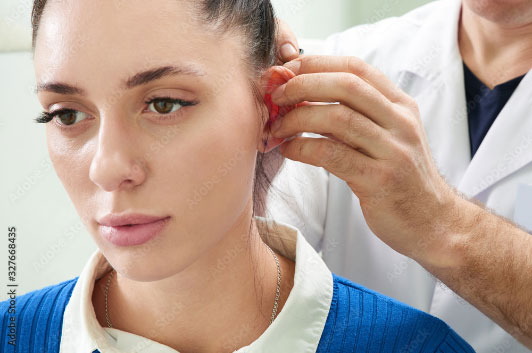
Otoplasty
Also known as cosmetic ear surgery, this procedure is used to change the size, shape, or position of the ears. This surgery is available for anyone over the age of five, which is the point when the ears are fully developed. The techniques used in surgery depend on the amount and type of correction taking place. The procedure takes about two hours, and the ears will remain bandaged for a few days.
Once the bandages are removed, patients notice an immediate change in the appearance of their ears. The ears might be swollen or red for a few weeks. The results from the procedure are permanent.
Rhinoplasty
This is a surgery that changes the shape of the nose. The procedure has both cosmetic benefits for those unhappy with the size and shape of their nose, as well as repairing deformities that make it hard to breathe. The surgery is performed by making a small cut at the base of the nose, between the nostrils. The surgeon is then able to adjust the bone and cartilage beneath the skin.
Recovery from the procedure occurs over several weeks. Slight bleeding or drainage is common during this time. Patients are advised to avoid blowing their noses or participating in strenuous activities.
